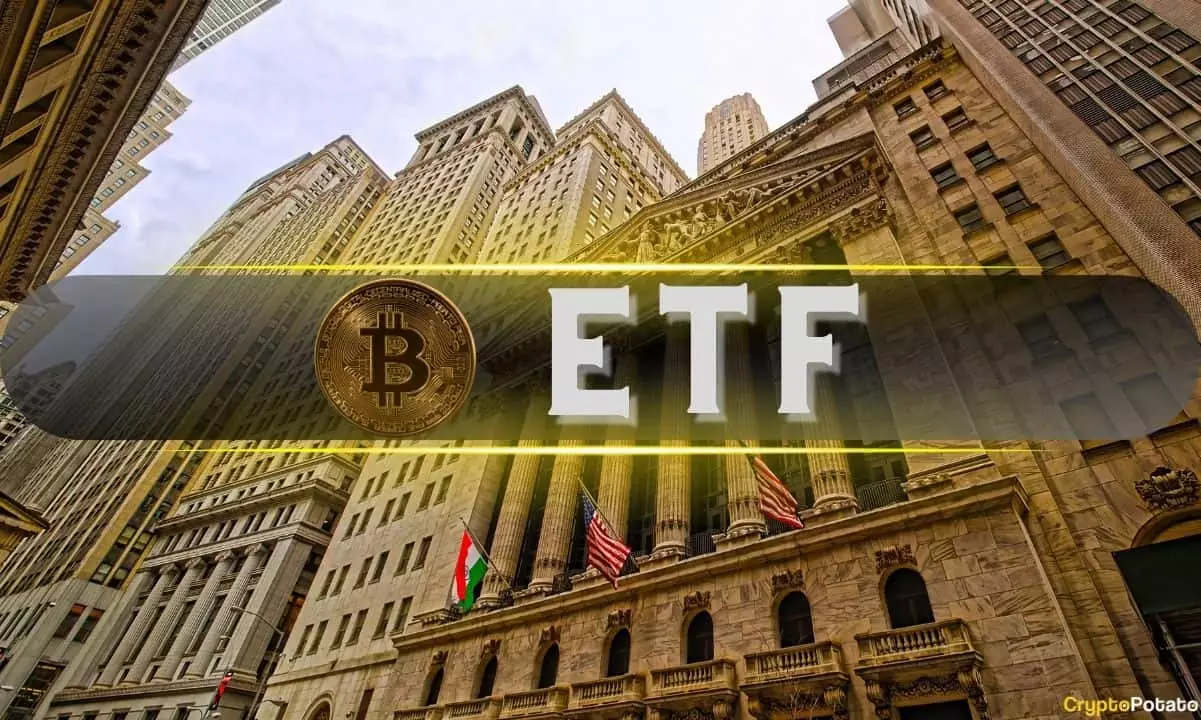The U.S. spot Bitcoin exchange-traded fund (ETF) market has recently experienced unprecedented challenges, culminating in a staggering outflow of nearly $938 million in a single day. This record-breaking figure marks the end of a six-day trend characterized by negative cash flows, a phenomenon that signals growing concerns among institutional investors. The timing of this outflow aligns with Bitcoin’s price drop beneath $87,000, its lowest point since mid-November, raising questions about the market’s stability and investor sentiment.
Almost all major spot Bitcoin ETFs in the United States reported significant withdrawals, with Fidelity’s FBTC leading the charge at $344.7 million—its highest outflow since inception over a year ago. BlackRock’s IBIT was not far behind, recording withdrawals of $164.4 million. This exodus is compounded by Bitwise’s BITB, which suffered outflows amounting to $88.3 million. The pattern is alarming, especially considering that just a few weeks prior, BlackRock’s ETF had set its record for daily outflows at $332.6 million. The consistency in negative flows points towards a potential lack of confidence in Bitcoin as a viable investment for institutional funds.
As noted, February has proved to be an exceptionally poor month for Bitcoin ETFs, with widespread outflows dominating most trading days. The data indicates that from February 6 to 25, the market experienced only two days of positive inflows—raising alarms about the overall health and future viability of these investment vehicles. With over $3 billion exiting these funds in a matter of weeks, February stands out as the most challenging period for Bitcoin ETFs since their inception in early 2025.
The crucial question remains: What is driving this negative sentiment? A complex interplay of macroeconomic factors is at play, influencing investor behavior. Concerns about inflation, interest rates, and broader market volatility have led investors to exhibit a more cautious approach towards Bitcoin and associated products. As institutional confidence wanes, it appears that the appetite for Bitcoin as an investment avenue is diminishing.
This trend of significant outflows, particularly within major funds like Ark Invest’s ARKB—remaining notable for not witnessing inflows—highlights a potentially precarious future for the Bitcoin ETF landscape. What is particularly striking is how few ETFs have managed to buck the trend, with only a handful reporting inflows amidst widespread withdrawals.
In essence, the current downturn suggests that institutional investors are reassessing their strategies concerning cryptocurrencies. Should this trend persist, it might not only alter the trajectory of Bitcoin but also reshape the overall cryptocurrency market. Stakeholders will need to remain vigilant, monitoring not only Bitcoin’s price movements but also the macroeconomic conditions that influence these critical investment decisions. The future for Bitcoin ETFs hinges on restoring confidence among investors, an endeavor that may take longer than anticipated.














